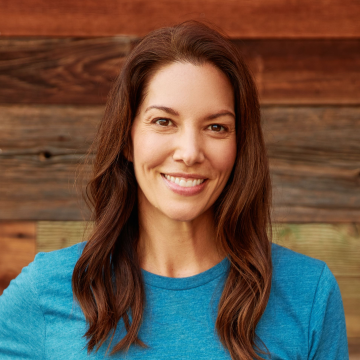We’ve all got things we’re not good at. Identifying the ones you should care about, letting go of the ones that don’t matter, and getting better at the ones that do is the secret to big breakthroughs.
Need advice about something? Ask us here: ForcesOfEqual.com/Advice/
Transcript
Pam: [00:06]
Pam: [00:00] You’re listening to Not Bad Advice, where our goal is to offer perspective that helps you improve one aspect of your life at a time.
[00:13] I’m Pamela Lund.
CK: [00:20] And I’m CK Chung.
Pam: [00:22] And we hope that after listening you’ll think, “Hey, that’s not bad advice!”
[00:32] This week, we’re continuing our series on developing grit, inspired by the work of Angela Duckworth and Steven Kotler. So far, we’ve discussed the grit to recover – aka why naps are necessary – and the grit to master your fears.
[00:54] These two types of grit are pretty easy to understand. You have to actively and mindfully recover, so you [01:00] have the energy to do what it takes to achieve your goals. And you have to be able to do things that scare you, if you’re going to break out of your comfort zone. Simple enough.
[01:10] The type of grit we’re going to cover today is more nuanced. This is the grit to train your weaknesses. In his talks on the subject, Steven Kotler invokes a version of the quote, “We don’t rise to the level of our expectations, we fall to the level of our training,” to support why we need to develop the grit to train our weaknesses.
[01:33] He says that you’re only as strong as your weakest point. So you can get to a certain level of success by leaning into your strengths. But once you try to do more, your weaknesses will hold you back.
[01:46] Not everyone agrees with Kotler. When you discuss the idea of training your weaknesses, people will generally have one of two opinions. One side will say that you’re already good at the things you’re good at, so you should put more effort into training up what you aren’t good at.
[02:02] The other side will say that you shouldn’t put effort into training things you’re not good at. They’ll say you should double down on things you are good at instead, because enhancing your strengths will compensate for your weaknesses.
[02:16] I think both perspectives are right, depending on the type of weaknesses you’re talking about. And this is where the nuance comes in. The type of weaknesses that you want to train up are things that you have to do to achieve your goals.
CK: [02:32] Examples of the types of weaknesses you may need to train to achieve your goals are things like public speaking, being comfortable on camera, being a good listener, communicating your ideas clearly, patience, staying calm under pressure, and saying no.
[02:50] You don’t need to do your own bookkeeping, video editing, graphic design work, or website maintenance to be successful. Unless you enjoy doing those things, there’s no reason that you personally need to become skilled at anything that can be outsourced without negatively impacting the area. Especially if you don’t enjoy doing it.
[03:10] These are all things that you may personally have to do. So if you’re not good at them, you need to put effort into improving.
[03:17] The types of weaknesses that you want to outsource, or just let yourself be bad at or things that you don’t personally have to do to achieve your goals. You don’t need to train up weaknesses that aren’t actually holding you back.
Pam: [03:30] To find the weaknesses you should put effort into improving, start by just making a list of things that you think are holding you back. These could be skills or knowledge that you don’t have, or they could be patterns or behaviors, or they could be self-limiting thoughts.
[03:46] Keep your list short – like a max of three to five things. This is not an exercise to see how low you can get your self esteem.
[03:56] If you feel comfortable, go to a few people that you trust [04:00] and who know you well. Ask each of them what they think your top three weaknesses are. It’s a good idea to get a mix of people from all areas of your life, not just family or coworkers. Different people will see different sides of you, and they’ll all bring their own baggage. So a varied sample will give you better information.
[04:21] Look at everyone’s ideas and see which ones come up in their lists and yours to get an idea of where to start. Or, if you already know what you want to focus on, just start with that one. You’ve probably got an idea right now.
[04:35] My three most potent weaknesses that I’m working on are: perfectionism, which causes me to avoid doing things that I’m not already good at; not being self-motivated, which prevents me from doing anything if I don’t have external accountability; and rushing through things just to be done, which causes me to make mistakes and half-ass things.
[04:59] So CK, what are weaknesses you’re working on?
CK: [05:02] Oh, here we go. The quintessential interview question.
Pam: [05:07] You’re hired.
CK: [05:08] I’ve always been the one who dresses up their weaknesses to seem more like strengths, but I actually had a major weakness of mine come to light recently, and it was through uncovering one of my main strengths that led me to realize it.
[05:25] So, my strength is in being able to develop and integrate practices to form good habits. On the flip side, my weakness is my rigidity when it comes to these types of patterns of behaviors I’ve developed. In other words, once I’ve established a habit, it takes quite a long time for me to change course.
Pam: [05:48] You do get a little obsessive.
CK: [05:50] Thanks.
Pam: [05:50] Okay. So once you know what your target weaknesses are, you have to put effort into getting better and that’s the hard part. Training your weaknesses sucks! Doing things you’re bad at sucks, and it can be demoralizing. So, you don’t want to put too much time or energy into training your weaknesses, or you’ll spend a lot of time feeling terrible.
[06:14] If the weaknesses you’re working on are a skill or activity, you can make a plan for how to work on your thing just once or twice a week to start. For example, if you want to get comfortable speaking on camera, once a week, set up a camera and just record yourself speaking about something for 10 minutes. Or, if you want to train yourself to be a better listener, spend 10 minutes each week watching a lecture on YouTube about a topic that you have no interest in, and then teach someone else what you learned.
[06:48] Or, if you’re like me and your weaknesses are more mindset related, you may still be able to train them by doing something physical. For example, I use working out to train up my perfectionism [07:00] weakness. My trainer programs workouts to address my physical weaknesses, and doing those exercises that I am really bad at while someone watches me be bad at them, forces me to get comfortable not being perfect.
[07:16] If the weakness you want to work on is strictly mindset related and can’t be trained through a physical activity, you’re not going to be able to spend just an hour a week thinking differently and expect to improve. These things need to be trained with small effort on a regular basis in the moment they affect you.
[07:35] I like to keep notes on my desk to remind me of what I’m working on. So right now I have one that says “slow down” to help me train against my tendency to rush through things, just to get them done.
[07:48] Progress will be slow, especially at the beginning. So set very low expectations for how much you’ll improve. You don’t have to become an expert on what you’re learning. You may never [08:00] even become all that good, but you’ll be better than you were before, and you’ll learn a lot about yourself along the way.
[08:08] Ultimately developing the grit to train your weaknesses expands your capacity to do things you never thought you could.
[08:15] If you found yourself thinking, “Hey, that’s not bad advice,” while listening today, we’d love it if you shared the episode with your friends and rated it in iTunes.
[08:26] You can get in touch with us on Twitter, where I’m @Pamela_Lund and CK is @cKdisco.
[08:33] To find us on other platforms, visit ForcesOfEqual.com/Advice. There, you can also contact us if there’s something you need advice about. We’d love to hear from you.






